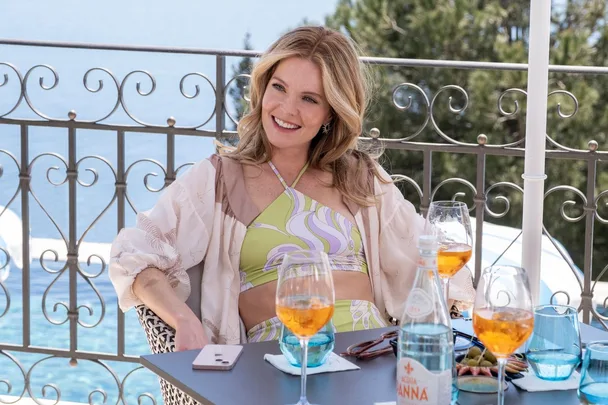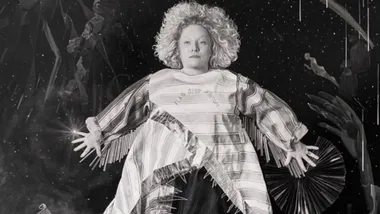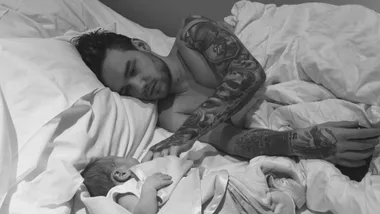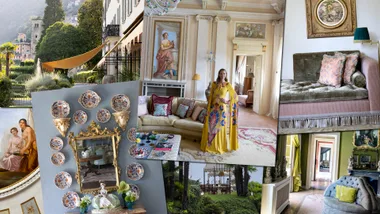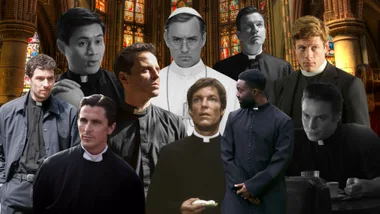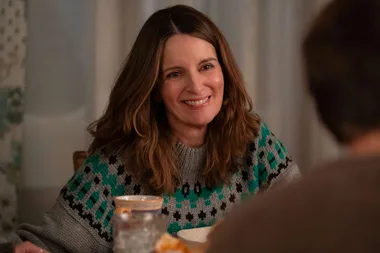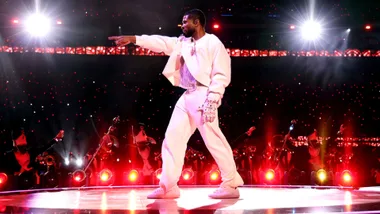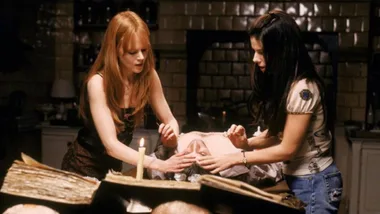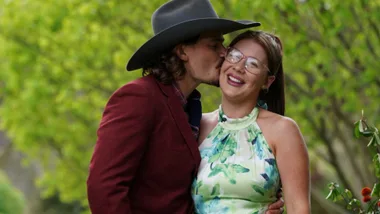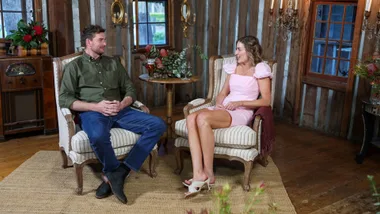From the moment we’re thrown back into The White Lotus world, we know just two things: people are dead and Daphne is not.
Played by The Bold Type’s Meghann Fahy, we’re initially coaxed to dismiss her as the vapid wasp, so coddled by her privilege that she couldn’t possibly have anything interesting to offer us or the other guests. She says things like “I don’t read the news, it’s too sad” and “why would people fight when they could just be happy?” that feel beyond out-of-touch. Every little thing about her, from the Versace one-piece to the Vintner’s Daughter in her beauty stash is a particular brand of flashy and highly curated—or highly basic, as some commenters would argue.
Either way, it all paints a pretty picture lacking in substance. Both her and her finance bro husband Cameron (Theo James) are perfectly juxtaposed against Harper (Aubrey Plaza) and Ethan (Will Sharpe), the latter of which are the relatable realists, intellectual and compassionate to the world’s suffering, with their wealth just an inconsequential part of their lives.
Harper’s snarky quips and judgement seem to fall like water on a duck’s back with the light-hearted Daphne.

But as some have pointed out, Daphne may just be more puppeteer than puppet. From the outset, she’s the doting wife and mother, dripping in designer, with ne’er a hair out of place and brimming with positive vibes. Only, as the show progresses, it’s clear that there’s more behind the eyes.
Whenever confronted with any bit of ugliness, we see the glossy façade slip, and we’re made aware that she is not as naive to the troubling parts of her life as she posits to be. And yet, as everyone unravels around her, she remains unperturbed by the events.
In fact, what we gather from her last conversation with the new guests on the beach—shown at the start—despite all she’s learned of her husband’s betrayals, Daphne wraps up her time at the White Lotus unscathed—chipper, even. We even hear from their last supper that she wants to holiday with Harper and Ethan again—at the Maldives, no less.
When springing an overnight stay on her new friend Harper, a high Daphne begins to reveal her hand, hinting that she’s well aware of her husband’s infidelity but is not one to be pitied. The overnight stay itself is nothing more than a chess move in her and her husband’s game of cat and mouse, playing on his “abandonment issues” to gain her upperhand. As she says, it “keeps things interesting.”
With lines like “when we disagree, you just give in, right?” and “why let them have all the fun?” we see further inferences that she’s just as much a master manipulator as her spouse, leveraging her power where it ultimately bests serves her.
Sure, we could chalk it down to a ‘don’t get mad, get even’ way of thinking, but many are convinced that Daphne is onto something.
As she advises both Harper and Ethan to shift their own way of thinking, her unwavering self-assuredness and refusal to suffer gives them—and us—plenty to ponder. Her counsel to “find ways to not be a victim to life” gives us insight into how she copes with her own troubling relationship.
It’s through these brief interactions that we see that she plays a much larger role in governing her life than we’d initially expect, doing exactly what the world expects of her as a trade-off for what she reaps in return.
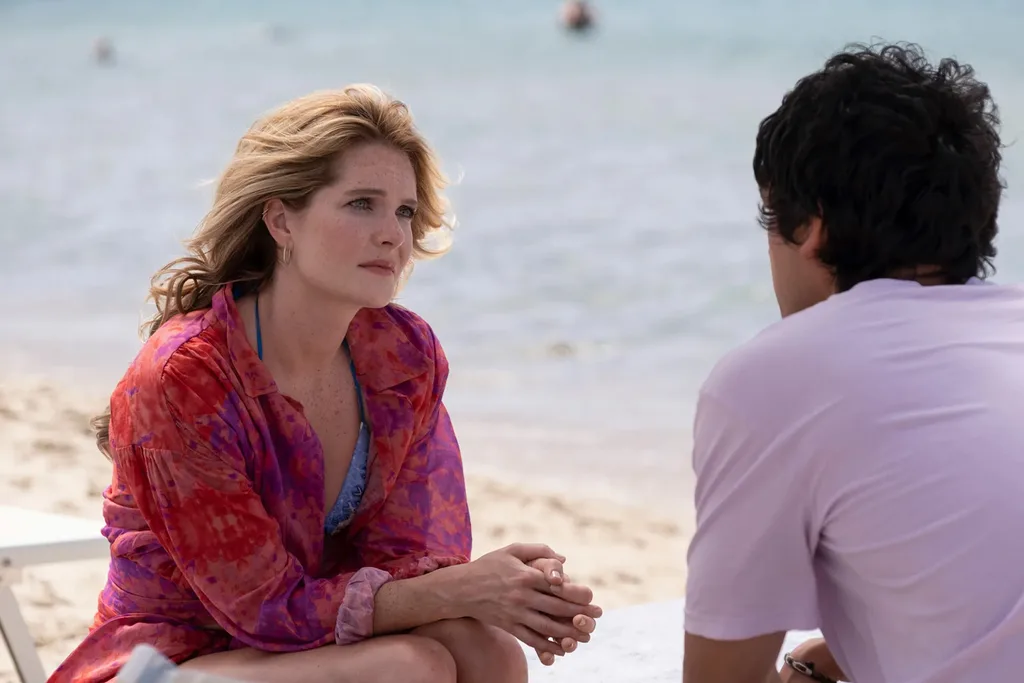
But the question is, what are we supposed to glean from her wisdom? Her messages are the most direct in the show, and yet, no one can agree if she’s a quiet hero or if she’s far from enviable. Is she an icon who has mastered life in all of its woes? Is she just a regular damaged person who finds ways to bear the unbearable? Or is she a deeply troubled person who is burying her own trauma with flawed rationalisations on a loop, telling herself she’s not a victim until she really believes it?
Take of it all what you will—that is the beauty of Mike White’s work, after all—but ultimately, she’s the only one who seems to leave the island unaffected by the happenings, still ready to raise her glass of white wine with a smile, so maybe she’s winning.
